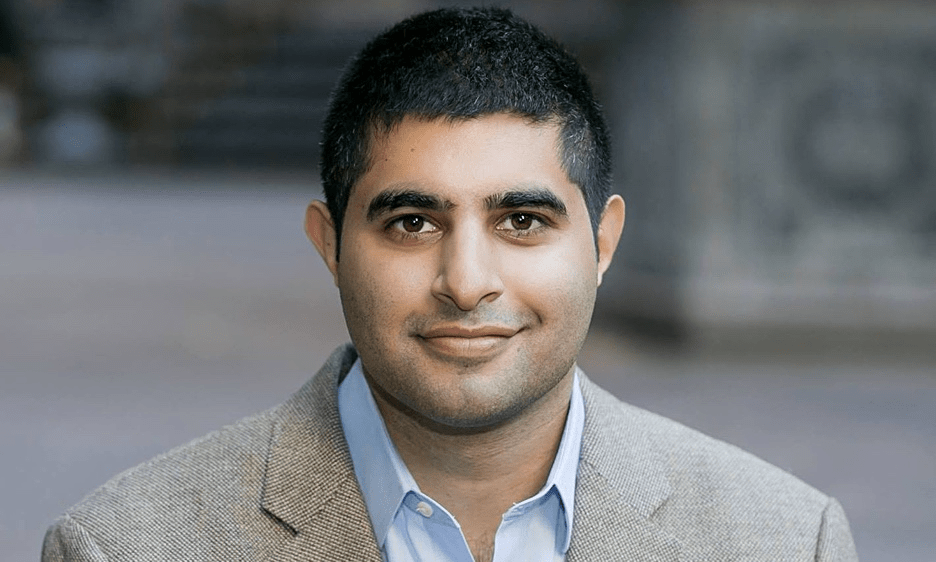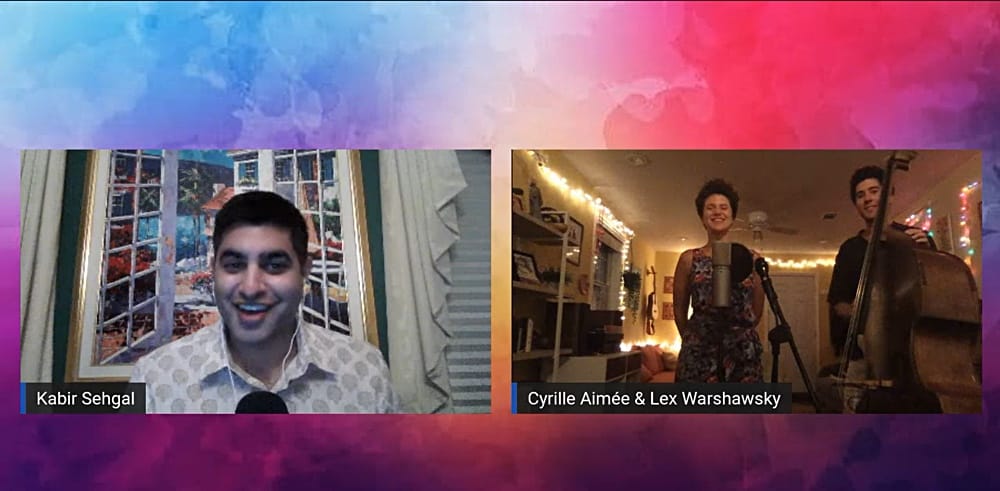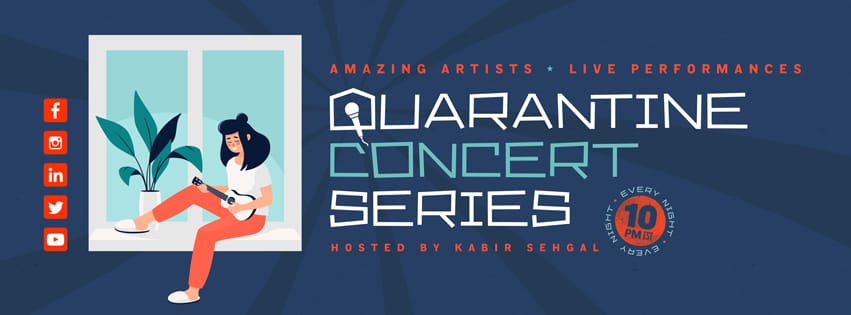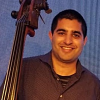Home » Jazz Articles » Interview » Kabir Sehgal: Spirited Warrior for Jazz
Kabir Sehgal: Spirited Warrior for Jazz

We have had over 1.5 million views, with an average of 35,000 views per episode. Our recent episodes are averaging 50,000 to 60,000 views. A couple episodes exceeded 100,000 views.
—Kabir Sehgal
Impressed? We are, but that's not all—you can add "livestream concert host" to Kabir's resume. Currently, he is livestreaming an eclectic mix of jazz as part of his Quarantine Concert Series, which is broadcasted from his parent's home in Atlanta, Georgia. Sehgal maintains a rigorous schedule which includes a nightly 10pm (ET) show, and two shows, including a 3pm (ET) matinee show, over the weekend. Past guests include Emilio Solla, Arturo O'Farrill, Manuel Valera, Madeleine Peyroux, Carlos Barbosa-Lima, Veronica Swift, Karrin Allyson, Grace Kelly, Emmet Cohen, Cyrille Aimée and Melissa Aldana, to name a few. All About Jazz will broadcast his upcoming Edmar Castaneda and Joey Alexander shows.
In this interview, Sehgal speaks about his Quarantine Concert Series and his relationship to jazz.
All About Jazz: Tell us a little about your background and your connection to jazz.
Kabir Sehgal: I've been a lifelong jazz musician and enthusiast. Ever since my sister brought home a Miles Davis album, when I was in elementary school, I was hooked. I played bass in my high school band that was a finalist in Essentially Ellington competition organized by Jazz at Lincoln Center. I met Wynton Marsalis, and he became a friend and mentor. While in college, I joined him on tour and learned about the connection between music and democracy, entertainment and economics. My conversations with him inspired my first book Jazzocracy: Jazz, Democracy, and the Creation of a New American Mythology.
While I didn't consider becoming a full time musician, I knew that I wanted to keep my connection with the music. I embarked upon a career in investment banking and serving as a military officer. At the same time, I wanted to support my friends in the arts, so I began producing albums. And now making these productions has taken over my life as a career.
I help artists make their projects happen, from coming up with the thematic idea and fundraising, to selecting and arranging repertoire, to recording and mixing the music. I suppose I am back where I started, as I'm playing more often, too. For example, I produced and played bass on Regina Carter's forthcoming album. I'm also co-leading and releasing meditation albums like Spiritual Warrior with Deepak Chopra and Paul Avgerinos.
AAJ: How and when was the Quarantine Concert Series conceived?
KS: In summer 2005, I was living in New Orleans right before Hurricane Katrina devastated New Orleans and the surrounding areas. At Wynton's request, I helped assess the economic damage to the creative economy, as so many musicians had left town. Wanting to be part of the solution, I co-founded an arts organization that focused on bringing creative professionals back to the city. We eventually created an online gig booking system in which people in New York City and other metro areas could hire artists in their communities and then make a contribution to the relief efforts of New Orleans. In short, it was a brokerage for musicians: Wall Street meets Bourbon Street. We eventually merged our organization with a larger one.
I share this history because I believe strongly that in times of duress, we need to keep the music going. Indeed, music and the arts are sources of inspiration, and we have to be there for artists. I started the Quarantine Concert Series to put the spotlight back on artists. They are there for us during the year, sharing their hearts and souls. We must be there for them now.
When the virus turned into a full fledged pandemic, I received hundreds of emails from artists saying their gigs had been canceled. So, I launched this concert series in earnest. I have never done anything like this before. I generally try to avoid the spotlight, as I believe it should be focused on the artist. So I had to "get over" my discomfort of being so public and visible in the arts community.
We've produced 40 shows in 30 days, and we've found something of a rhythm. We're on live at 10 pm ET every night.
AAJ: In addition to a musical performance, you also interview the musicians, and relay questions from Facebook viewers. Are you finding a running thread among the musicians on how they are coping with the lack of work?
KS: I think the interview format adds dynamism and interactivity to each broadcast. Instead of only a musical performance, I can put the spotlight on the artist—and talk about their recent projects.
We take questions from viewers because I want the audience to feel like they can truly interact with the artists. Almost all artists have spoken about the difficulty of the current situation, with some diving into the creative process and writing new material. I believe in subsequent years we'll be hearing a lot of artists say "I wrote this during the quarantine..."
AAJ: Do you perform a soundcheck before each show? If so, what do you typically cover? Do you have a check list at this point?
KS: Yes, we have a soundcheck an hour or two before the broadcast. Every artist has their own set up and gear, so we have to assess what they have and what's possible. The sound of the artist is 100% in the hands of the artist. There isn't any sound level or mixing dials that we can touch on my side. Yes, I send a checklist for the artist to review before every show. It's been interesting seeing how each artist handles their own audio and visual technology. In our early episodes, our soundchecks were only thirty minutes before the show, but now we do it sooner so that we can still leave space for the artist to collect their thoughts before we go live.
AAJ: On average, how long does it take to prepare for a show, and what is involved?
KS: It takes three hours to produce every show and 12 man hours. We generally start sound check at 8:30 pm ET. The show begins at 10 pm ET. And the sound team and I conduct a post show meeting which ends around 11:30 pm ET to review the show and address what we can do better. That's how we get to three hours per show. Then we divide and conquer to produce the show. At 8:30 pm ET, Kamilo Kratc and I meet with the artist for soundcheck, and Kamilo then leads the artist through the sound setup. Meanwhile, I build the presentation slides (while I am listening into the soundcheck) that feature photos and albums of the artist. Sandra Kratc and I review the information in the deck. And then there is the artist who is involved in the process. So, it's three hours with four people which is 12 man hours a day. That's 132 man hours per week (11 shows). And after 57 shows, that is 627 man hours or 26 days of time.

AAJ: You're currently broadcasting from your parent's home in Atlanta. When are you planning to return to NYC?
KS: I am enjoying spending this sustained time with family. It's a blessing to be with them, and we're getting closer. I recently wrote the biography of my father Close the Loop: The Life of an American Dream CEO and His Five Lessons for Success (Hachette, 2020) by Raghbir Sehgal and Kabir Sehgal. The book comes out next month, so we spend hours talking about our release plans. Every morning, my father asks me "How did the concert go last night? How many people watched?" I learned the value of persistence and follow through from him. Hosting a nightly show takes considerable work and attention, attributes I observed and learned from him.
I very much want to get back to my place and see my friends again. At the same time, I am trying to live in the moment and appreciate being with my family in Atlanta.
AAJ: How do you go about selecting and scheduling the performances?
KS: There is no science to it. At first, I asked my friends—artists with whom I have collaborated. For example: Arturo O'Farrill, Manuel Valera, Karrin Allyson, Emilio Solla, Mehmet Ali Sanlikol, Gregorio Uribe. I have produced albums for all of them. In fact, I just finished producing and co-writing a documentary Fandango at the Wall that spotlights Arturo O'Farrill and son jarocho artists from Veracruz, Mexico.
After hosting my friends, I started to hear from other artists who wanted to be featured. I soon realized that there was enough "demand" from artists to do a show every night at 10 pm ET and four shows (that include matinees) over the weekend. While we have featured mostly jazz artists, we also book artists in other genres. For example, Maddie Poppe, who won American Idol in 2018, was on the broadcast. Latin star Debi Nova was also an early participant. We've hosted many children's artists, too.
All concerts are free to watch for the audience. Almost all artists are paid (some have declined). We have a waiting list of several dozen artists wanting to be on the show, and we're trying to be as thoughtful and fair regarding who we can feature.
AAJ: Is there a conscious effort to book emerging artists?
KS: Absolutely. We try to mix our programming between emerging and established artists. For example, we featured Zelma Stone, a rising singer and songwriter who is incredibly talented. The very next day we featured Grace Kelly, who is already a veteran saxophonist and songwriter who tours around the world. We recently featured The Jazz Bazaar, an amazing vocals-and-sax duo. While they are also emerging, you wouldn't know it by listening to them—as they perform like veterans.
AAJ: Where can someone watch the Quarantine Concerts Series?
KS: You can find us live at 10 pm ET every night on Facebook, YouTube, LinkedIn, Twitter and Instagram. We also have 3:00 pm ET matinee shows on Saturday and Sunday. All shows are archived, so you can watch later, too. You can see the full line up at my website: Quarantine.Tube.
AAJ: What is the series collective viewing reach?
KS: We have had over 1.5 million views, with an average of 35,000 views per episode. Our recent episodes are averaging 50,000 to 60,000 views. A couple episodes exceeded 100,000 views.
AAJ: What type of technology do you use?
KS: My parent's dining room has been turned into a production studio. I have two PC laptops, an Android phone (for Instagram TV), external speakers (so I can play cheesy audience claps!), and a Fifine microphone.
AAJ: How does Soundworks Recording Studio help with production?
KS: I am absolutely blessed to have Sandra and Kamilo Kratc involved in the production. One of the first artists that I booked on the show was Sonia De Los Santos, and she asked Kamilo to help set up her sound (Kamilo had worked on her last album). Kamilo not only helped her set up her devices, but he proactively reached out to the artists on subsequent episodes and started to help them. And I didn't even ask! I love people who roll up their sleeves! That he is able to handle the sound set up, it allows me to focus on the artist and audience. Sandra is also incredible, too. She helps manage all the graphics during the concert, so that we can show still portraits and album covers. They are both a joy to work with. We already knew each other, but this concert series has drawn us closer. And it's fun seeing their dogs Oreo and Maui during soundcheck. Both Sandra and Kamilo are first class professionals and have a high attention to detail. They operate a wonderful studio in Queens: Soundworks Recording. As a result of the pandemic, they also lost business. I encourage all artists to work with them. I know that I'm likely to collaborate with them on future audio releases.
AAJ: How long are you planning to continue the series?
KS: For as long as I can. I'm starting to hear that gigs may be canceled into 2021. I'm not sure we can keep up a nightly show, but maybe we can explore moving to a weekly or biweekly cadence when the world gets back to normal. For now, we are going strong and are booked through mid May.
AAJ: As host, have you noticed any differences or similarities to how the performers approach their "quarantine" concert, compared to a "live" concert?
KS: Quarantine concerts seem to be more intimate. For starters, most artists are broadcasting from their homes, some from their bedrooms. So, the audience gets to see the artist in their creative space. Many of these artists already work from home, and it's like they're inviting us into their studios to share with us their craft. I've been pleasantly surprised that most artists are very prepared for each show, and several said that they had "butterflies" before the performance.
AAJ: Streaming concerts can be meaningful even after folks return to the clubs. Do you think jazz can cultivate a new audience this way?
KS: Yes, online concerts are here to stay. Several jazz institutions and clubs have simulcasted live streams of events. But the current situation has habituated the audience even more to watching and enjoying in this new way. In order for online concerts to be most effective, I think they should be interactive. That means responding to audience questions and acknowledging incoming feedback. During our concert series, I encourage people to ask questions. The more engagement, the better.
AAJ: You've presented over 40 livestreams. Which performances stood out and why?
KS: I enjoy hosting this series because I'm able to check in with many friends. And I'm also able to make new ones. It's hard to pick standout performances because they are all special in their own way. Of course, the first concert with Emilio Solla was crazy. I called him up and was like "Look, go turn on your camera. We're going to perform for everyone now." I didn't even know how to live stream and we figured it out on the fly. Other stand out performances include artists who said they had never done a livestream from home before such as Karrin Allyson or Veronica Swift. A few artists have premiered songs during the show, too.
AAJ: How would a musician contact you about a gig?
KS: They can contact me on Facebook or Instagram.
AAJ: Anything else to add?
KS: Thanks for all that YOU do on behalf of the jazz community. I have been reading AAJ for years and believe you deserve a national medal for the service you do in connecting our community.

You can tune in daily for Kabir Sehgal's Quarantine Concert Series. Click here to select your preferred video platform.
Comments
Tags
Interviews
Michael Ricci
Quarantine Concert Series
Kabir Sehgal
wynton marsalis
New Orleans
Atlanta
New York City
Veronica Swift
Arturo O'Farrill
Manuel Valera
Karrin Allyson
Emilio Solla
Mehmet Ali Sanlikol
Gregorio Uribe
Regina Carter
Deepak Chopra
Paul Avgerinos
Soundworks Recording Studio
grace kelly
The Jazz Bazaar
Zelma Stone
Emmet Cohen
COVID-19
coronavirus
livestream jazz
For the Love of Jazz
 All About Jazz has been a pillar of jazz since 1995, championing it as an art form and, more importantly, supporting the musicians who create it. Our enduring commitment has made "AAJ" one of the most culturally important websites of its kind, read by hundreds of thousands of fans, musicians and industry figures every month.
All About Jazz has been a pillar of jazz since 1995, championing it as an art form and, more importantly, supporting the musicians who create it. Our enduring commitment has made "AAJ" one of the most culturally important websites of its kind, read by hundreds of thousands of fans, musicians and industry figures every month.





















